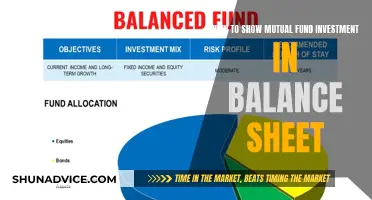
Tax-saving mutual funds, also known as Equity Linked Savings Schemes (ELSS), are a type of Equity Mutual Fund that offers tax benefits under Section 80C of the Income Tax Act. ELSS funds are a great investment option for those looking for wealth generation, regular returns, and tax savings. These funds have a mandatory lock-in period of three years, the shortest among all tax-saving investments, and provide dual benefits of tax rebate and wealth growth.
When choosing a tax-saving mutual fund, it is important to consider factors such as fund performance, expense ratio, and risk tolerance. Some of the top-performing ELSS mutual funds in India include the Quant ELSS Tax Saver Fund, Motilal Oswal ELSS Tax Saver Fund, SBI Long Term Equity Fund, and HDFC ELSS Tax Saver Fund. These funds have consistently delivered strong returns and are managed by reputable fund houses.
It is always recommended to consult with a financial advisor before making any investment decisions to ensure that the chosen fund aligns with your investment goals, risk tolerance, and time horizon.
What You'll Learn
- ELSS funds are a great investment option for those looking for wealth generation, regular returns and tax savings
- ELSS funds have a mandatory lock-in period of three years, the shortest among all 80C options
- ELSS funds are suitable for investors with higher risk tolerance
- ELSS funds are handled by finance professionals called 'fund managers'
- ELSS funds are taxed like an equity fund

ELSS funds are a great investment option for those looking for wealth generation, regular returns and tax savings
ELSS or Equity Linked Savings Schemes are a great investment option for those looking for wealth generation, regular returns, and tax savings. ELSS funds are tax-saving mutual funds that combine the benefits of equity investments with tax deductions under Section 80C of the Income Tax Act, 1961. Here are some reasons why ELSS funds are a great investment option:
Tax Benefits
ELSS funds offer tax benefits to investors, with investments eligible for tax deductions under Section 80C of the Income Tax Act. The maximum tax benefit that can be availed by investing in ELSS every year is ₹46,800 by investing up to ₹1.5 lakh per year. This makes ELSS funds a great option for those looking to save taxes.
Wealth Generation and Regular Returns
ELSS funds have the potential for high returns, with an average return of 15% in the long term. The diversified portfolio of ELSS funds, investing in equities from various sectors, also ensures regular returns and reduces the risk of concentration. ELSS funds have generated an average return of 23.9% per annum in the last 5 years, with 3 and 10-year annualized returns of 20.61% and 16.62% respectively.
Shortest Lock-in Period
ELSS funds have a lock-in period of 3 years, the shortest among all tax-saving options. This makes ELSS funds a more liquid investment option compared to traditional tax-saving instruments such as tax-saving fixed deposits, which have a 5-year lock-in period, and Public Provident Fund (PPF), which has a 15-year maturity.
Dual Benefits of Tax Saving and Wealth Creation
ELSS funds serve the dual purpose of tax saving and wealth creation, making them a great option for those looking for both these benefits. The potential for high returns in ELSS funds makes them a stand-out option among all tax-saving investments.
Suitable for Aggressive Investors
ELSS funds are suitable for aggressive investors who have a higher risk appetite, tolerance for market volatility, and a long investment horizon of at least 5 years. The equity-oriented nature of ELSS funds provides the potential for higher returns but also comes with higher risk compared to fixed-income tax-saving instruments.
Ideal for First-time Investors
ELSS funds are ideal for first-time investors as they offer tax benefits along with exposure to equity investing and mutual funds. While equity investments carry a higher risk, the risk is generally over the short term due to volatility. Investing in ELSS funds through Systematic Investment Plans (SIPs) helps accumulate more units when the market is down and generate good returns when the markets are favourable.
In conclusion, ELSS funds are a great investment option for those looking for wealth generation, regular returns, and tax savings. The dual benefits of tax savings and wealth creation, along with the potential for high returns, shortest lock-in period, and suitability for aggressive and first-time investors, make ELSS funds a popular choice for long-term investors.
You Invest: Exploring Mutual Fund Options
You may want to see also

ELSS funds have a mandatory lock-in period of three years, the shortest among all 80C options
ELSS funds, or Equity Linked Savings Schemes, are the only type of mutual funds that are eligible for tax deductions under Section 80C of the Income Tax Act, 1961. They offer tax deductions of up to Rs 1,50,000 per year, with a short lock-in period of three years. This is the shortest lock-in period among all Section 80C tax-saving options, including Public Provident Fund (PPF), National Pension Scheme (NPS), and National Savings Certificate (NSC).
The lock-in period for ELSS funds is a mandatory feature, during which investors cannot redeem their holdings. This is a key difference between ELSS funds and other tax-saving investments, which often have longer lock-in periods or none at all. The short lock-in period makes ELSS funds attractive to investors who want to reduce their tax burden while still having access to their money within a few years.
ELSS funds offer the dual benefits of tax savings and wealth creation. By investing in ELSS funds, individuals can claim a tax rebate and save on their annual taxes. At the same time, ELSS funds provide exposure to equity and equity-linked securities, offering the potential for higher returns compared to other fixed-income tax-saving instruments.
While ELSS funds offer attractive benefits, it is important to consider the associated risks. As equity-oriented schemes, ELSS funds carry a higher risk compared to fixed-income investments. Investors should be comfortable with market volatility and have a long-term investment horizon of at least five years to mitigate short-term risks.
In summary, ELSS funds offer a unique combination of tax savings and wealth accumulation, with a short lock-in period that is unmatched by other Section 80C options. However, investors should carefully consider their risk tolerance and investment goals before choosing ELSS funds as a tax-saving investment vehicle.
Bond Funds: Where to Invest Now?
You may want to see also

ELSS funds are suitable for investors with higher risk tolerance
ELSS or Equity Linked Savings Schemes are tax-saving mutual funds that combine the benefits of equity investments with tax deductions under Section 80C of the Income Tax Act, 1961. ELSS funds have a mandatory lock-in period of three years, offering the potential for high returns and tax savings, making them a popular choice for long-term investors.
- ELSS funds are market-linked equity-oriented schemes, and there is a significant risk of short-term volatility. While these investments can provide returns that are significantly higher than inflation in the long term, investors need to be comfortable with the short-term risks.
- ELSS funds primarily invest in equities, with a minimum of 80% of their assets invested in stocks and equity-related instruments. This high exposure to equities increases the potential for higher returns but also comes with higher risks compared to fixed-income instruments like Public Provident Fund (PPF).
- The performance of ELSS funds is market-linked, and the returns depend on the performance of the underlying equities in the portfolio. This means that investors need to be comfortable with the risk of market fluctuations affecting their investments.
- ELSS funds have a diversified portfolio, investing in stocks from different sectors and market capitalizations (large, mid, and small caps). While this diversification helps reduce concentration risks, it does not eliminate the overall risk associated with equity investments.
- The fund manager of an ELSS fund enjoys complete freedom and flexibility in investing across sectors and market caps. This means that the fund's performance can be highly dependent on the fund manager's skills and expertise, adding another layer of risk to the investment.
Therefore, ELSS funds are suitable for investors with a higher risk tolerance who are seeking to reduce their tax burden and are planning to stay invested for the long term, typically for five years or more. It is important for investors to consider their risk tolerance and investment horizon before investing in ELSS funds.
Mutual Fund Investors: Declare Investments in Your ITR
You may want to see also

ELSS funds are handled by finance professionals called 'fund managers'
ELSS funds are handled by finance professionals called fund managers. These fund managers play a key role in managing your funds and should be competent and experienced in picking the right stocks and creating a strong portfolio.
ELSS or Equity Linked Savings Schemes are tax-saving mutual funds in India, combining the benefits of equity investments with tax deductions under Section 80C of the Income Tax Act, 1961. ELSS funds have a lock-in period of three years, the shortest among all tax-saving investments, and offer the potential for high returns, making them a popular choice for long-term investors.
ELSS funds primarily invest in stocks of listed companies chosen from across market capitalisation (large, mid, and small caps) and sectors. The fund manager's role is to pick stocks after conducting in-depth market research to deliver optimal risk-adjusted portfolio returns. The fund manager enjoys complete freedom and flexibility in investing across sectors and market caps. While most funds in this category are large-cap heavy, investing primarily in India's top 100 companies, they also allocate funds to mid and small caps.
ELSS funds offer dual benefits: tax savings and wealth creation. Investments in ELSS funds can be claimed as tax deductions under Section 80C, with a limit of Rs. 1.5 lakh per year, resulting in tax savings of up to Rs. 46,800. Additionally, ELSS funds have the potential to offer superior returns compared to other tax-saving options like fixed deposits or PPF. Over a 15-year period, ELSS funds have generated average returns of over 21%.
When deciding whether to invest in ELSS funds, it is important to consider your investment horizon, risk tolerance, and financial goals. ELSS funds are suitable for investors with a long-term investment horizon of at least five years, as the equity exposure of ELSS funds requires a longer time frame to mitigate market volatility. They are also ideal for salaried individuals looking to balance their fixed-income investments with higher-return options and for first-time investors who can benefit from the lock-in period to learn the nuances of equity investing.
In summary, ELSS funds, managed by fund managers, offer a unique combination of tax savings and wealth creation potential, making them a compelling option for long-term investors seeking market-linked returns with the added advantage of tax deductions.
Vanguard Index Fund: When to Invest for Maximum Returns
You may want to see also

ELSS funds are taxed like an equity fund
ELSS or Equity Linked Savings Scheme funds are tax-saving mutual funds in India. They combine the benefits of equity investments with tax deductions under Section 80C. ELSS has a 3-year lock-in period, offering the potential for high returns and tax savings, making it a popular choice for long-term investors.
ELSS funds are taxed like equity funds. Capital gains from ELSS get the same treatment in the income-tax calculation as the rest of the equity instruments. Short-term capital gains (STCG) attract a tax of 15%, while long-term capital gains (LTCG) are taxable only if the gains exceed ₹1 lakh during the financial year. Long-term capital gains above ₹1 lakh are taxed at 10%.
Features of ELSS funds
- Lock-in period: It comes with a minimum lock-in period of 3 years.
- Equity exposure: It invests at least 80% of the investment in equities.
- Tax saving: Investments in ELSS are eligible for tax deduction under section 80C, up to Rs 1.5 lakh.
- Market-linked returns: It offers market-linked returns, and performance depends on the performance of the underlying equities in the portfolio.
- Diversified Portfolio: ELSS funds typically invest in diverse equities from various sectors, thereby decreasing concentration risks.
Who should invest in ELSS funds?
ELSS funds are suitable for salaried individuals and first-time investors. If you are a salaried employee, you would likely be contributing to the Employees' Provident Fund (EPF), a fixed-income product. If you want to generate higher returns on your investment portfolio, then ELSS is a suitable option. Apart from providing good returns over the long term, investments in ELSS are also eligible for tax deduction under Section 80C.
Retirement Funds: Best Indian Investment Options
You may want to see also
Frequently asked questions
As of March 7, 2022, the five best tax-saving mutual funds based purely on returns for different time periods are:
- For 1 year: Quant Tax Plan, PGIM India ELSS Tax Saver Fund, IDFC Tax Advantage (ELSS), BOI AXA Tax Advantage, and DSP Tax Saver.
- For 3 years: Quant Tax Plan, BOI AXA Tax Advantage, Mirae Asset Tax Saver Fund, Canara Robeco Equity Tax Saver, and IDFC Tax Advantage (ELSS).
- For 5 years: Quant Tax Plan, BOI AXA Tax Advantage, Mirae Asset Tax Saver Fund, Canara Robeco Equity Tax Saver, and IDFC Tax Advantage (ELSS).
Investors can invest in ELSS through two routes: Systematic Investment Plan (SIP) and Lump-sum. SIP allows investors to contribute a fixed amount at regular intervals (monthly, quarterly, or annually), providing the benefit of rupee cost averaging and the power of compounding. Lump-sum is a one-time investment made in a given financial year.
As of March 1, 2022, the category returns of ELSS for 1-year, 3-year, and 5-year periods were 18.96%, 18.76%, and 14.38%, respectively. In comparison, the current return of a PPF is 7.1%. Financial experts suggest that a ULIP plan generates an average return of 10-12% over a 10-year investment period.
Investments in ELSS and ULIP are considered high-risk due to their association with equity-related instruments. However, fixed-income instruments like PPF are not completely risk-free, as interest rate fluctuations can impact their returns.







